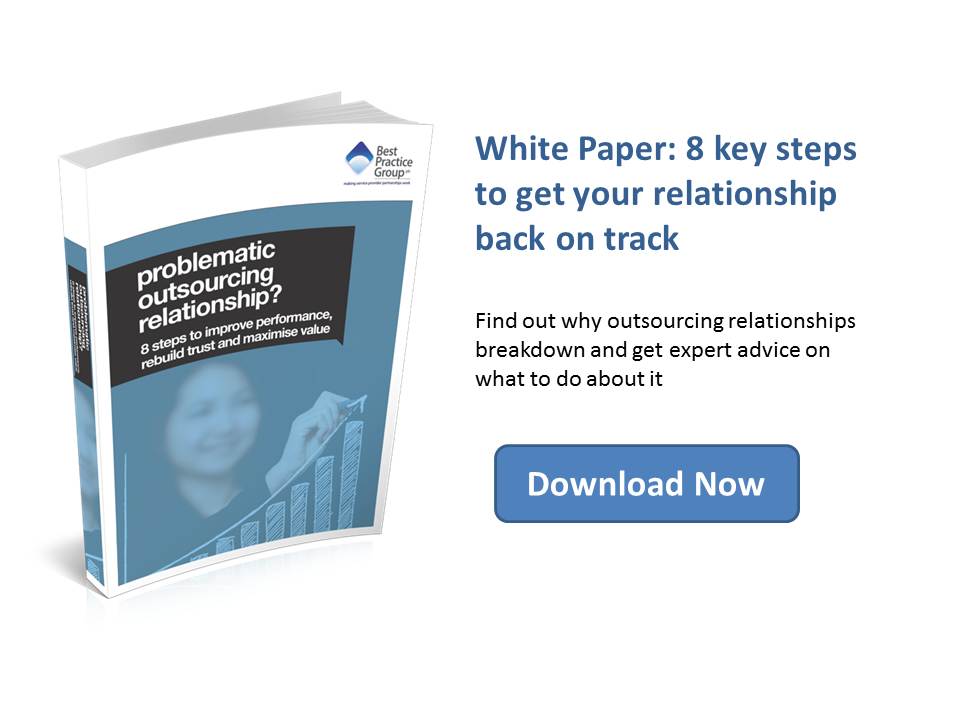
We know from our own experience, and via the media of course, that many strategic supplier relationships have their ups and downs. Traditional good practice tells us that when a relationship is heading in a downward trajectory, we should consider contractual escalation points that are designed to put pressure on the supplier to positively encourage it to ‘up its game’.
However, if you’ve tried this on your projects, you may have found this formal contractual escalation process to have certain unanticipated consequences. Far from the supplier upping its game as a result, you may receive counter-allegations that your own team hasn’t been achieving the goals it said it would and, as a result, it is alleged that this has hampered the supplier from doing its job and meeting your expectations.
Supplier challenges… bun fights don’t usually get you to the outcomes you both need
This accusation and counter-accusation tit-for-tat can rapidly deteriorate into a bun fight that really does not assist you in getting to the outcomes both of your organisations need. Service can actually get worse as a result and the relationship may continue to spiral downward. Naturally, you’ll then increase the pressure still further by involving your internal or external legal team and they now get involved with the supplier too, with the expectation that the supplier will capitulate and, as previously hoped, up their game.
But, once again, the desired outcome is often not what results. The unanticipated consequences of involving your own legal team usually means that the supplier, because it is obligated to, will likely involve its professional indemnity insurance company as a result. In turn, the insurers will probably instruct a legal firm. Your supplier becomes even more intransigent because its insurers will insist it does as little as it can while it assesses the case/issues. You can already see where the scenario leads…
Informally Negotiate? Mediate? Arbitrate?
In our previous article, we discussed assessing both your own and your supplier’s underlying interests to determine how you might assess ‘your best alternative to a negotiated agreement’ in the event there are challenges trying to identify a more straightforward solution.
Once you feel you are better informed, we often find that undertaking an informal on-a-page ‘business case’ to assess the pros and cons really helps to clarify the most effective options available to you. It will assist you to understand whether you:
- Stay as is
- Go straight to adjudication and/or mediation
- Escalate the process (remediation plan approach) without starting the early stages of adjudication
- Start the early stages of adjudication, but maintain the ‘as is’ process
- Start the early stages of adjudication, but escalate the process (remediation plan approach)
Whatever the way forward – using the contract, arbitration, remedial or negotiable – it’s important to recognise the financial impact each will have, their potential impact on the relationship between supplier and client and whether any will move everyone closer to the outcomes you were aiming for at the outset.
Your options appraisal ‘on-a-page’ (or two)
In our experience, taking the emotion out of your decision and making it as fact/evidence-based as possible, is the most effective way forward. On the basis that the right questions are being asked and unambiguous evidence is being collated and summarised as a result, it can save a lot of disagreement between various internal stakeholders about which approach you should sensibly be taking.
The following tables outline some key considerations:
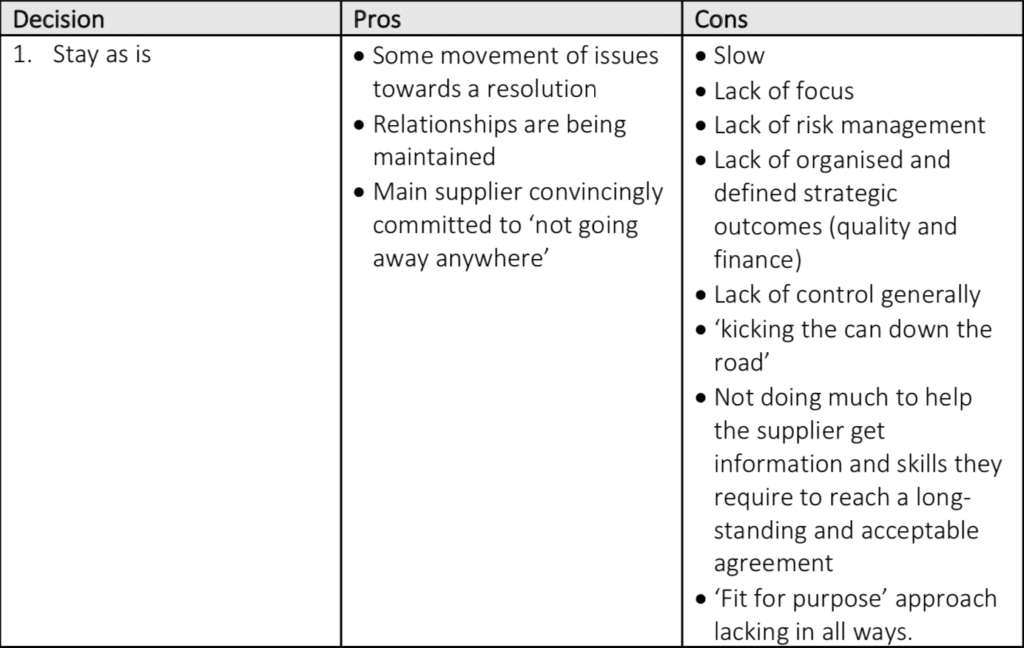
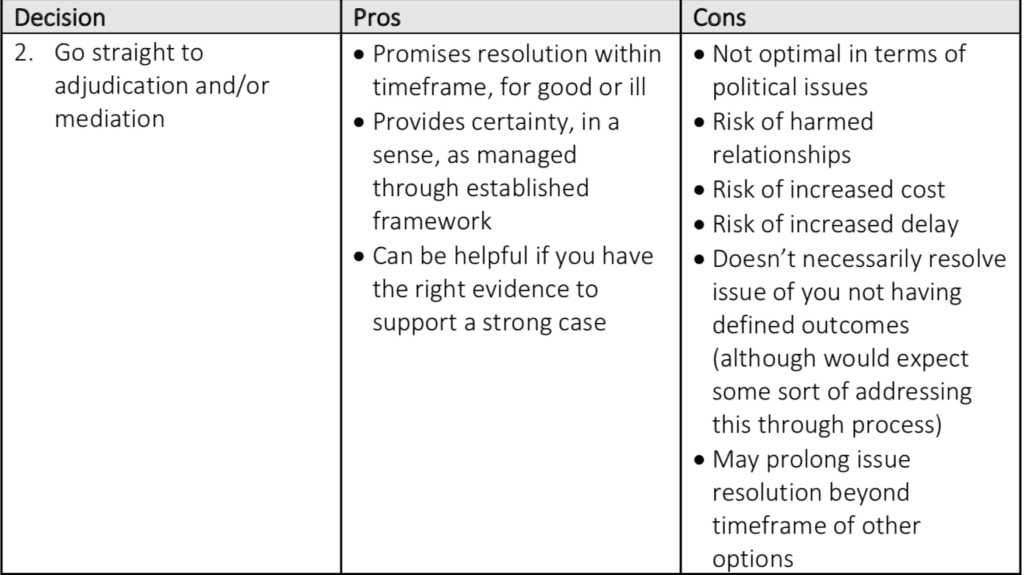
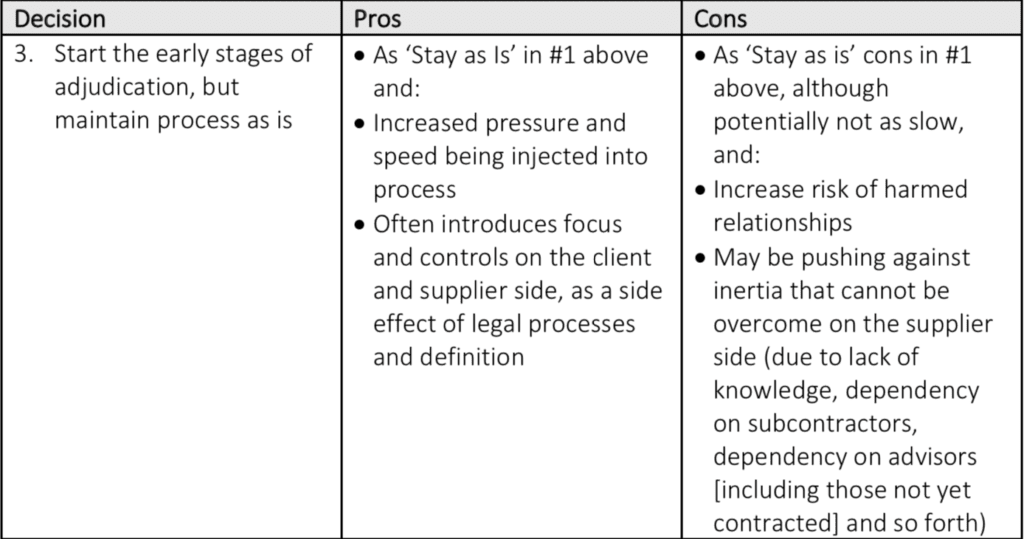
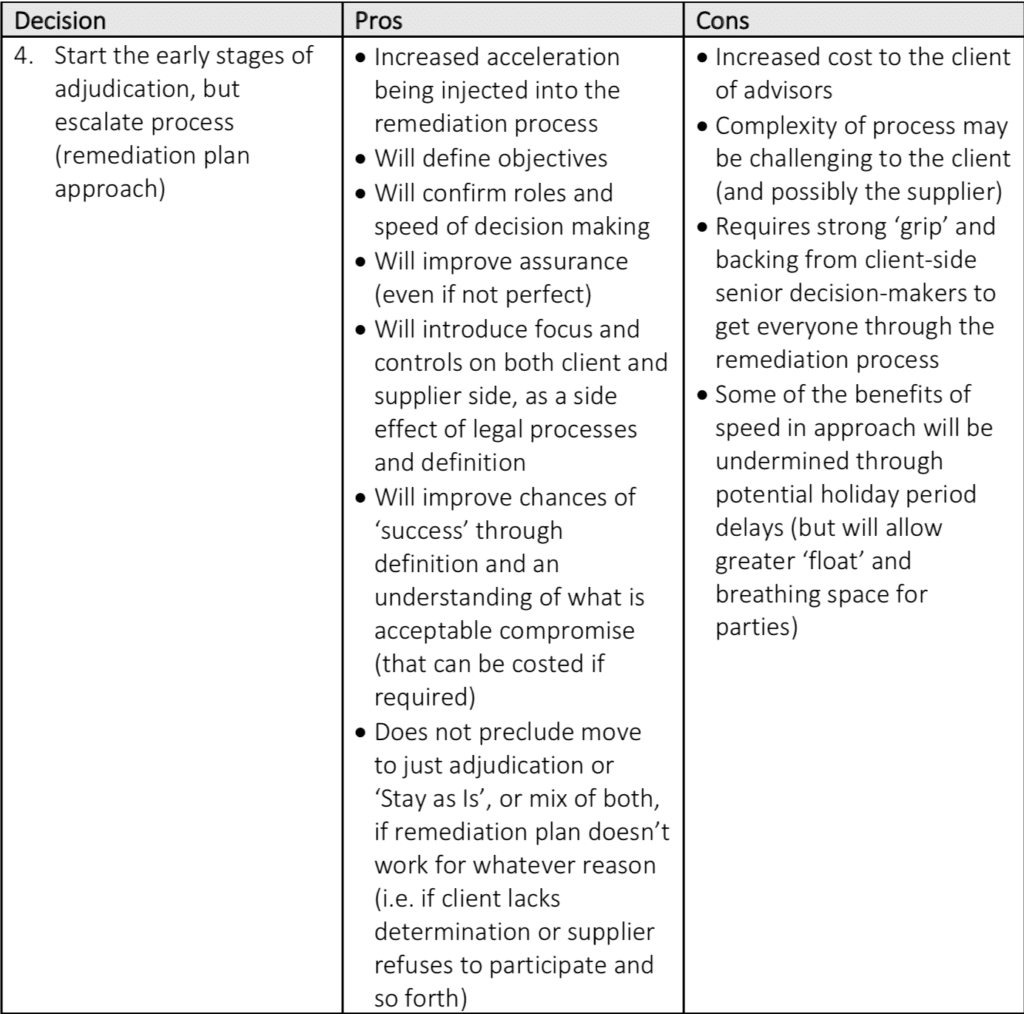
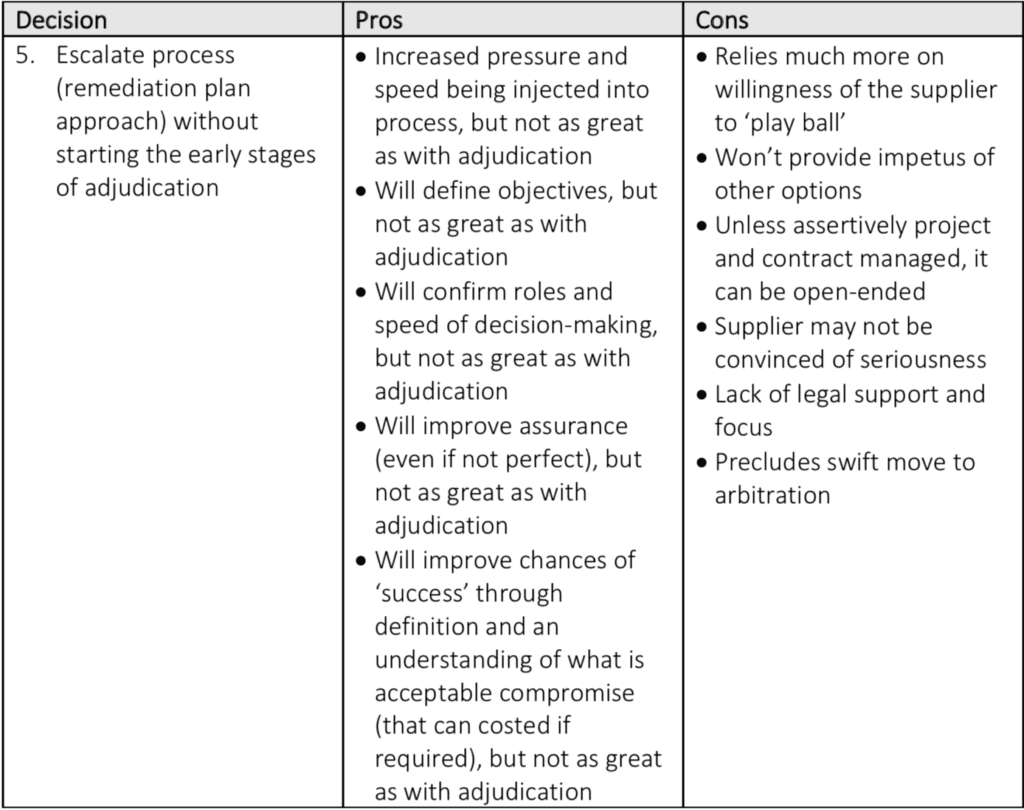
Conclusion
Bringing a supplier back in line with expectations is a delicate process that can so easily spiral out of control if not managed properly. In the vacuum of pure contractual obligation, following the ‘rules’ set out and agreed by both parties at the outset may seem like the right way to go, but in reality emotion and ego will often get in the way, fear of the consequences of inaction or capitulation can lead to overreaction, misunderstandings and unpredictable outcomes.
Always gather the right evidence to have greater certainty of your own and your supplier’s position. This process will help you to identify not only what has gone wrong and when, but why, and whether your team had any part to play in it. Do not neglect to investigate this last point, as an ‘intelligent’ client must always be prepared to consider the possibility that a ‘cog’ in their own machine could be contributing to the situation they now find themselves in.
Steady and without emotion is always best. Always lead with evidence-based reasoning and look to ensure that your facts are watertight before you discuss them. Listen to your counterpart’s objections or you will not be able to address them; you are looking for the win-win option that will retain your relationship while getting your supplier to ‘up its game’.
Photo credit: i-Stock, Tetiana Lazunova

